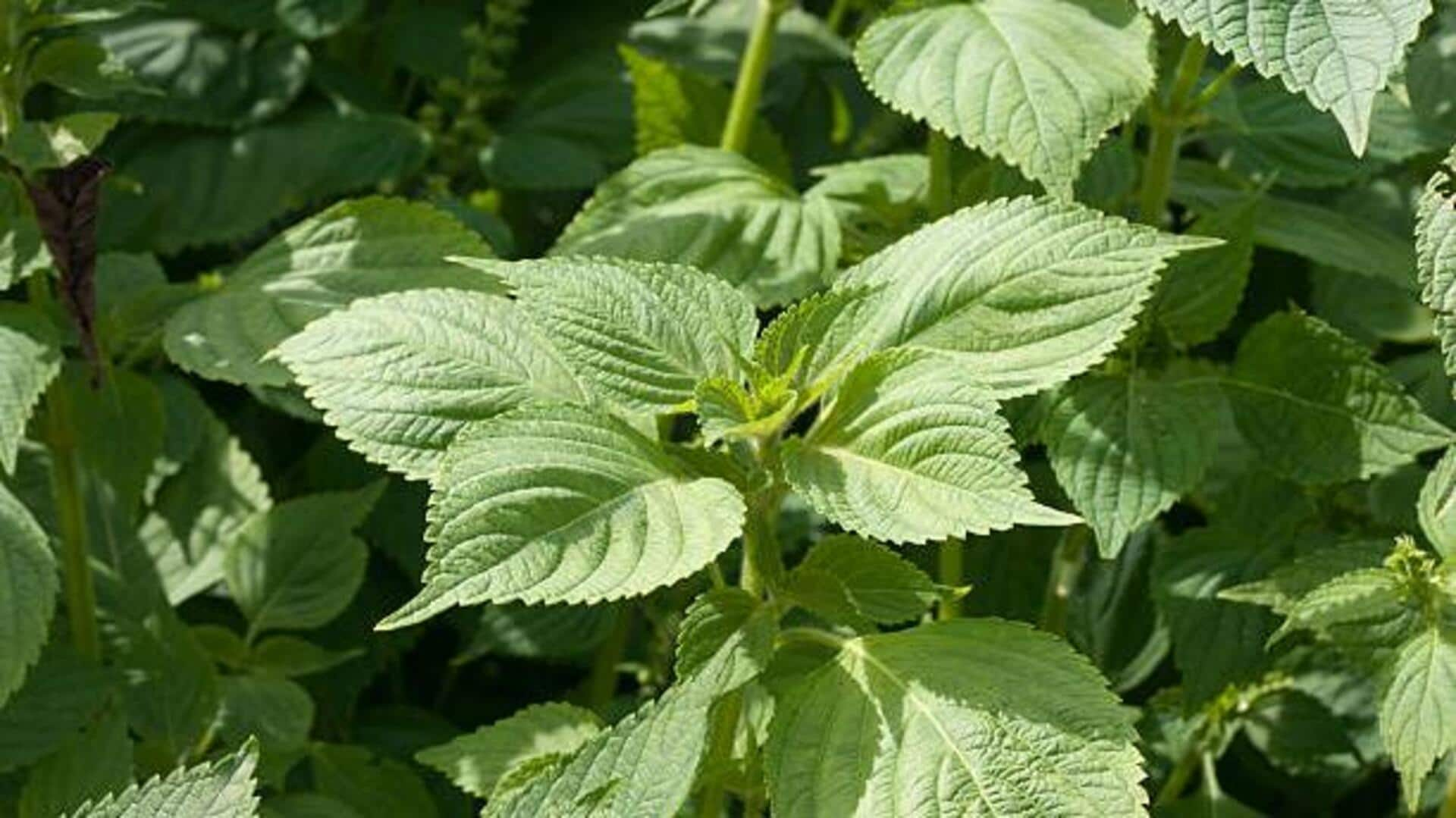
Sesame leaves: Nutrition, culinary uses, and more
What's the story
Sesame leaves, a staple in many Asian cuisines, are slowly making their way into the limelight for their nutritional benefits. These green leaves are packed with essential nutrients that can make a healthy addition to your diet. They are rich in vitamins and minerals, making them a great option for those looking to up their nutrition game. Let's take a look at the nutritional profile of sesame leaves and how they can benefit you.
#1
Rich source of vitamins
Sesame leaves are loaded with vitamins A and C, which are essential for maintaining healthy vision and boosting the immune system. Vitamin A promotes good eyesight and skin health, while vitamin C is a powerful antioxidant that protects cells from damage. Including sesame leaves in your diet can help you meet your daily vitamin requirements without having to rely on supplements.
#2
High mineral content
These leaves are also rich in essential minerals such as calcium and iron. Calcium is important for bone health, while iron is necessary for transporting oxygen in the blood. Eating sesame leaves can help you meet your mineral needs naturally, especially if you are lactose intolerant or don't eat dairy products.
#3
Antioxidant properties
Sesame leaves also contain antioxidants that help fight oxidative stress in the body. These antioxidants neutralize free radicals that may cause chronic diseases over time. By including antioxidant-rich foods like sesame leaves in your diet, you can promote overall health and well-being.
Tip 1
Versatile culinary uses
Incorporating sesame leaves into your meals is easy, given their versatility. You can use them fresh in salads or soups or cook them as part of stir-fries or stews. Their mild flavor makes them blend well with other ingredients without overpowering them, giving you a nutritious boost effortlessly.